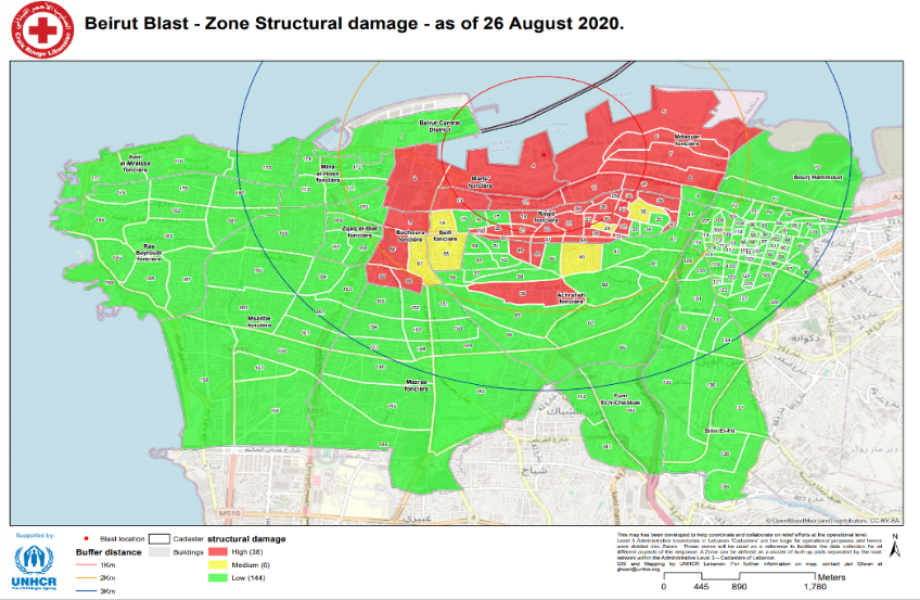Community Based Rehabilitation for persons with disabilities following the Beirut Port Explosion
- Location
- Lebanon
- Project type
- Humanitarian Action
On the 4th of August 2020, a large explosion occurred in the port of Beirut in Lebanon, killing at least 191 people and injuring over 6,500. The impact of the explosions in the port of Beirut continued to exacerbate the psychosocial, economic and food security situation in Lebanon which has already deteriorated recently due to an ongoing economic crisis and the COVID-19 pandemic.
At least 800 of the injured people got a permanent impairment because of the blast. Furthermore, persons with disabilities face numerous barriers to access humanitarian assistance.

CBM/LUPD Response
To address the impact of the explosion on persons with disabilities, CBM in collaboration with its OPD partner “Lebanese Union for People with Physical Disabilities (LUPD)” developed a joint project.
Following the days after the blast, LUPD provided basic aid in the damaged area of Beirut right after the bomb blast and assisted in removing the rubble, visually assessing the situation and damages as well as the type and the size of the needed intervention. Along with that, the LUPD team visited hospitals that have received patients and contacted mayors and heads of municipalities to collect data on the damages and the people who got affected by the blast. Since the very beginning, LUPD worked and coordinated with different local and international organisations on the site of the blast to collect information on services they provide and under which criteria each service is provided.
The assessment of the needs of the persons with disabilities and the newly impaired people revealed the need for rehabilitation, medication, food, emergency cash assistance and assistive devices. LUPD will cover these needs either through direct intervention or referrals to the respective service providers identified through the mapping of stakeholders.
LUPD shall also cater for the needed socio-economic development of persons with disabilities through personal coaching, socio-economic empowerment, rapid vocational training and job coaching as well as advice for setting up and running a small business.
To increase a disability-inclusive approach in the humanitarian sector in Lebanon, LUPD shall mainstream disability as a cross-cutting issue in the humanitarian response of other actors but also in the reconstruction work necessary after the destruction through the bomb blast to make buildings more accessible.
The Lebanese Union for People with Physical Disabilities (LUPD) was founded in 1981, during the Lebanese Civil War, to advocate for the inclusion, equality, and rights of persons with disabilities in Lebanese society. From its very beginnings, LUPD has been a grassroots and non-sectarian organization led by persons with disabilities. In the decades since its founding, LUPD has worked to shift government policies and the national discourse on disability from a framework of charity and exclusion to a framework of rights and inclusion.
LUPD has extensive experience working in different humanitarian settings and with diverse groups. It has been committed to promoting the rights of persons with disabilities to inclusion, equal participation, and accessibility. In addition, LUPD has also substantial experience in the areas of capacity building on inclusion, community development, human rights, psycho-social support, rehabilitation, and lobbying & advocacy.
LUPD works to advance the rights of persons with disabilities through two means: Advocacy and Services. By providing services to persons with disabilities, LUPD can support the empowerment of individuals to be active and engaged citizens, while also testing out and fine-tuning models of inclusion. From this on-the-ground expertise, LUPD is able to present and advocate for evidence-based models of laws, policies, and best practices to the government for adoption and nation-wide implementation.